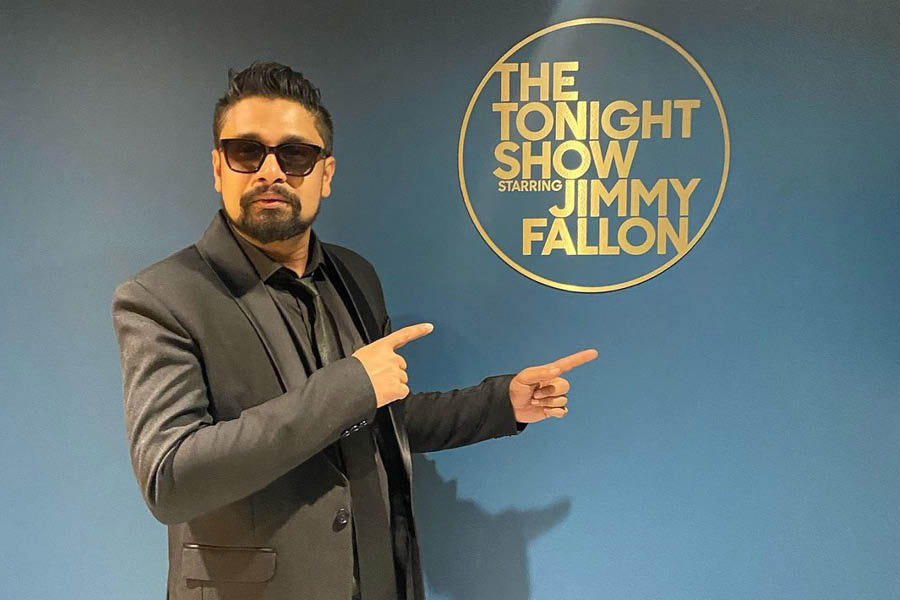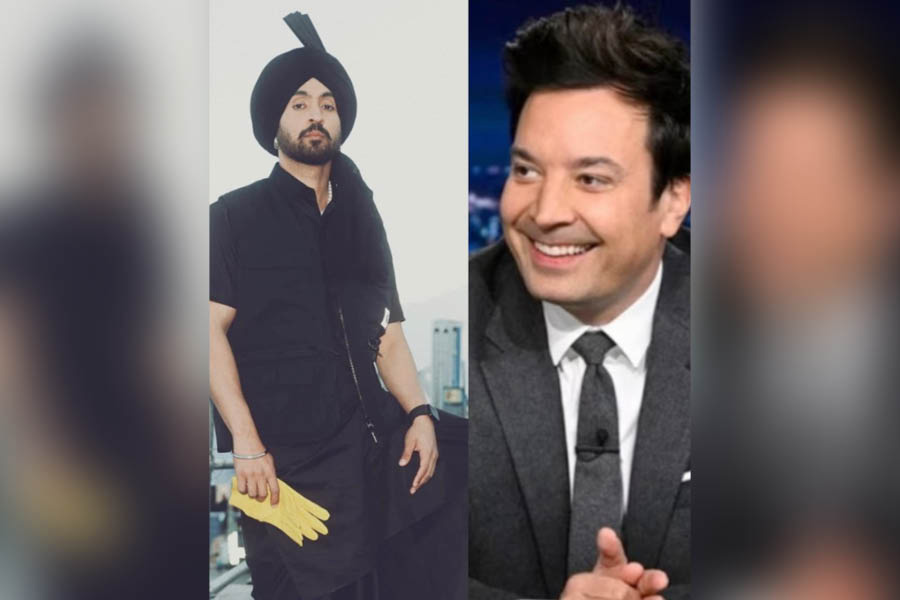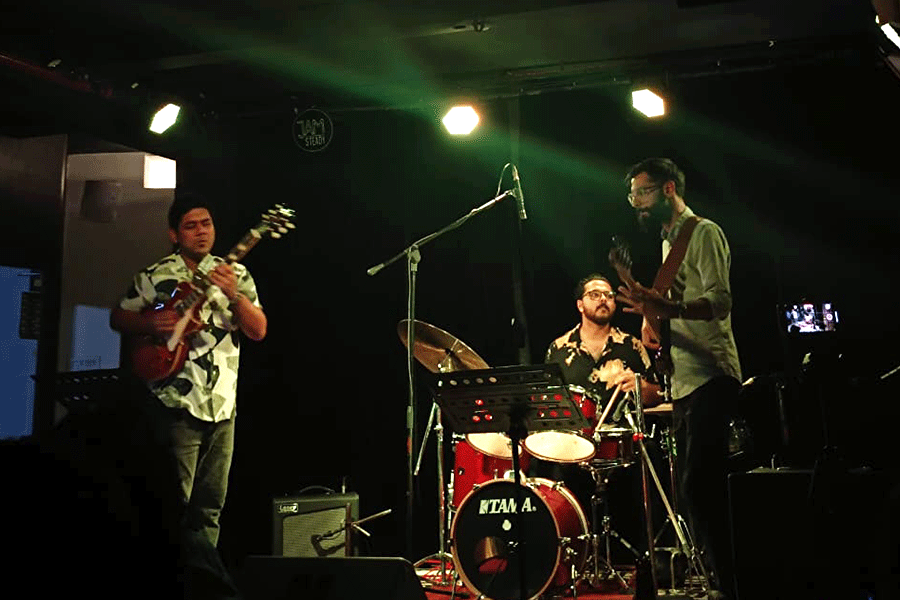When Punjabi powerhouse artiste Diljit Dosanjh appeared on The Jimmy Fallon Show recently, joining a small band of Indian artistes to make it to the popular American TV chat show, Kolkata boy Avishek Dey, too, enjoyed his share of spotlight, playing bass alongside him. Dey was also there when Dosanjh became the first Punjabi artiste to perform at the Coachella Valley Music & Arts Festival last year.
Recalling how he first started playing with Dosanjh, Dey said, “My journey began with a phone call from his management back in 2016. It was an offer to play at the YouTube Fanfest in Mumbai. The gig went smoothly, and soon after, I was invited to join Diljit for more shows, including his first UK tour. Despite various changes since then, I’ve remained a steady member of his band. I’m deeply grateful for the opportunities, kindness and respect Diljit has given me throughout our journey together.”
In a chat with My Kolkata, Avishek Dey spoke about his family, career, his initial days in the music industry, his aspirations and more. Read on…
How did you get interested in music?
I come from a family of musicians — my father is a piano player and my uncle is a drummer. Growing up in the musical ambience, I always wanted to be a musician. At the age of eight, I started playing the bass, and by 11, I was performing with my father. This continued until I was 16. when I began exploring jazz and eventually studied it at Swarnabhoomi Academy of Music. Music has been an integral part of my life, deeply influenced by my family’s musical background.
Among all the instruments, what drew you to choose the bass?
I was drawn to the bass because of its deep sound. At home, I would watch musicians play and was captivated by the instrument. I would sneak into my father’s music room at night to experiment with his bass, which sparked my interest and led me to learn it on my own at a young age.
While the bass is my primary instrument, I can also play guitar and piano. My piano skills are mainly for composing music. Although I understand the drum set, I never practised it extensively. As a bass player, I feel a special connection with the piano because bass playing has a lot in common with the usage of the left hand on the piano and I see the two as inherently connected.
Do you think hailing from Kolkata shaped your creative perspective?
Absolutely! Growing up in a traditional Bengali family in Kolkata meant following strict discipline. My parents were very particular about doing things correctly, and this mindset greatly influenced my approach to music. They insisted that in order to pursue a career in music, I must commit fully and strive for excellence.
This discipline shaped my dedication to music, leading me to spend hours practising my instrument. Attending a music academy later on allowed me to formally study and refine my musical skills. While I didn’t know many songs, initially, the academy taught me the important fundamentals. Receiving a full scholarship was a fantastic opportunity, allowing me to immerse myself deeply in music education.
Despite Kolkata being known as the country’s creative and cultural hub, you've made great progress since moving to Mumbai. What do you think about the brain drain caused by limited opportunities in Kolkata?
Kolkata has faced challenges because of political and economic factors that have impacted everyone. When my father began performing live on stage, the economic conditions for musicians in the city remained stagnant. Playing shows in Kolkata for me isn't just about money; it's about inspiring young musicians and rejuvenating the music scene.
I hope more live music venues will open up, as many talented musicians from Kolkata are moving to other cities due to limited prospects. A music career is risky, with its ups and downs, and Mumbai seems to offer more opportunities despite its challenges.
If Kolkata musicians focus on honing their skills and nurturing the local music scene, new venues could emerge, offering more opportunities, particularly for jazz and blues artistes. This could foster a vibrant music scene and result in additional venues for live music.
Kolkata has many talented artistes and the potential to build a thriving music community in the future. However, achieving this depends on addressing political challenges and the lack of venues.
Besides being the bassist for one of the top Punjabi singer-songwriters, you’re also recognised as a skilled jazz musician. What music do you enjoy playing the most?
I play many jazz gigs in Mumbai, often teaming up with amazing musicians. Alongside jazz, I also perform Punjabi music, which is quite different. I lead my band, Modcult, and my music is strongly influenced by broken-beat music, a UK genre I admire. I’m also a fan of Bebop, a style that paved the way for modern jazz and has significantly influenced my sound.
When performing at prestigious venues like The Jimmy Fallon Show and Coachella, do you experience nervousness or stage fright? What is your main takeaway from these performances?
Playing with Diljit is a unique experience for me because I’ve never felt stretched playing Punjabi music before. His music is powerful yet simple, and when I am on stage with him, it feels almost spiritual, like tapping into some higher force. The energy keeps rising from the first song to the last. Unlike the nervousness I feel before complex jazz gigs, his music is straightforward and potent. Once on stage, all distractions fade away, and I play straight from the heart.
Playing at Coachella, the Ambani pre-wedding celebration in Jamnagar, and most recently at The Jimmy Fallon Show, have been incredible experiences. I deeply value these opportunities and hope they continue. This exposure not only allows me to play alongside great musicians but also helps build my own following and promote my music. It's a remarkable way to connect with a large audience and share my musical journey.


